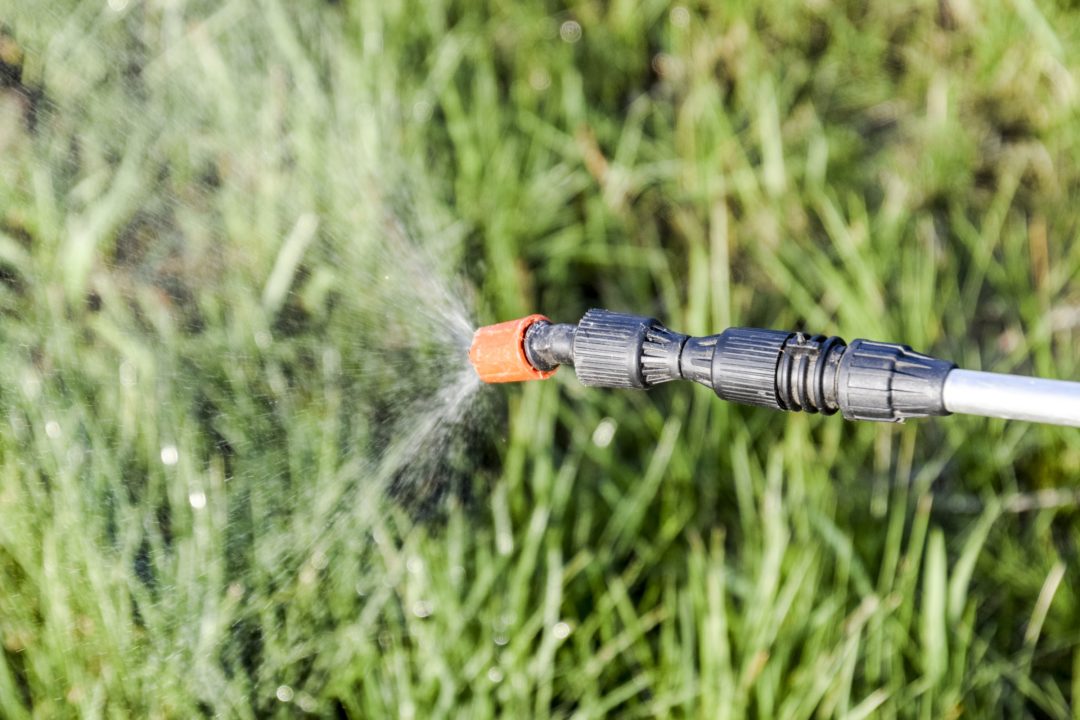
Jury Rules that Monsanto is Liable for California Man's Cancer

This was part of a trial presided over by Judge Vince Chhabria, whorequired the trial to be held in two phases: The first phase was to decide whether or not Roundup caused Hardeman’s non-Hodgkin lymphoma (NHL); the second was to decide whether or not Monsanto was responsible, if so. The first phaseended with a unanimous decisionthat, yes, Roundup caused Hardeman’s NHL; now, according toThe Guardian,it has ruled that “Roundup’s design was “defective,” that the product lacked sufficient cancer warnings, and that Monsanto was negligent in its failure to warn Hardeman of the NHL risk.”
The Guardianquoted a statement from Hardeman’s lawyers, saying: “As demonstrated throughout trial, since Roundup’s inception over 40 years ago, Monsanto refuses to act responsibly. It is clear from Monsanto’s actions that it does not care whether Roundup causes cancer, focusing instead on manipulating public opinion and undermining anyone who raises genuine and legitimate concerns about Roundup.” The statement echoes a procedural order given by Judge Chhabria during the first phase of the trial.
USA Todaynoted that Hardeman’s trial has the potential for great significance: Judge Chhabria is overseeing hundreds of Roundup lawsuits, and has deemed Hardeman’s case and two others “bellwether trials.”
USA Todayquoted Nathan Donley, a senior scientist at the Center for Biological Diversity, who told the paper in a statement that “Moral responsibility for any harm caused by the pesticide should be shared by the EPA regulators who ignored independent science and failed to protect Americans from this dangerous toxin.”
According toThe Guardian, Bayer has continued to argue that Roundup is safe. Bayer’s attorney, Brian Stekloff, told the jury before the verdict that their decision that “Monsanto, consistent with the science, consistent with how the science was being viewed around the rest of the world, did act responsibly.”
The Guardianadded a quote from a statement made by Bayer: “The verdict does not change the weight of over four decades of extensive science and the conclusions of regulators worldwide that support the safety of our glyphosate-based herbicides and that they are not carcinogenic.”The Guardianalso noted that the World Health Organization’s international agency for research on cancer ruled that glyphosate was “probably carcinogenic to humans” in 2015, although the EPA has deemed glyphosate safe for use.
Reuters reported that Bayer’s shares hit a low they haven’t seen in nearly 7 years.Reutersquoted Bryan Garnier analyst Jean-Jacques Le Fur as saying, “Even if Monsanto/Bayer may win some cases, there is great uncertainty about the number of victories and defeats. That is why we expect Bayer to try to settle the remaining cases.”
Related Articles

The editorial team at WholeFoods Magazine has decades of experiences reporting on natural products industry news, trends, and more. This national, monthly business-to-business magazine has been published continuously for nearly 40 years (the magazine was founded in 1977, and has been owned by Wainer Finest Communications since 1984). It is the longest-tenured media outlet of its kind in the natural products industry. The editorial focus at WholeFoods Magazine is, and always has been, on informing and educating members of the natural products industry.
*These statements have not been evaluated by the Food and Drug Administration. These products are not intended to diagnose, treat, cure, or prevent any disease.
The Magazine
Information
About Us
NOTE: WholeFoods Magazine is a business-to-business publication. Information on this site should not be considered medical advice or a way to diagnose or treat any disease or illness. Always seek the advice of a medical professional before making lifestyle changes, including taking a dietary supplement. The opinions expressed by contributors and experts quoted in articles are not necessarily those of the publisher or editors of WholeFoods.







